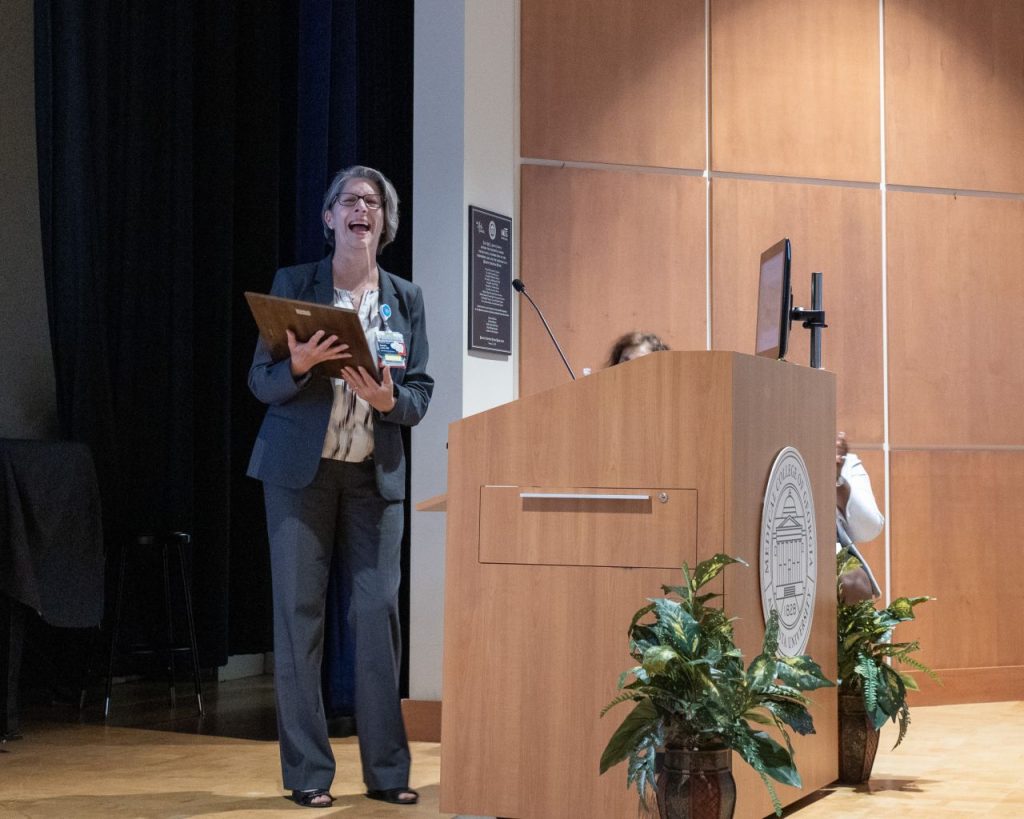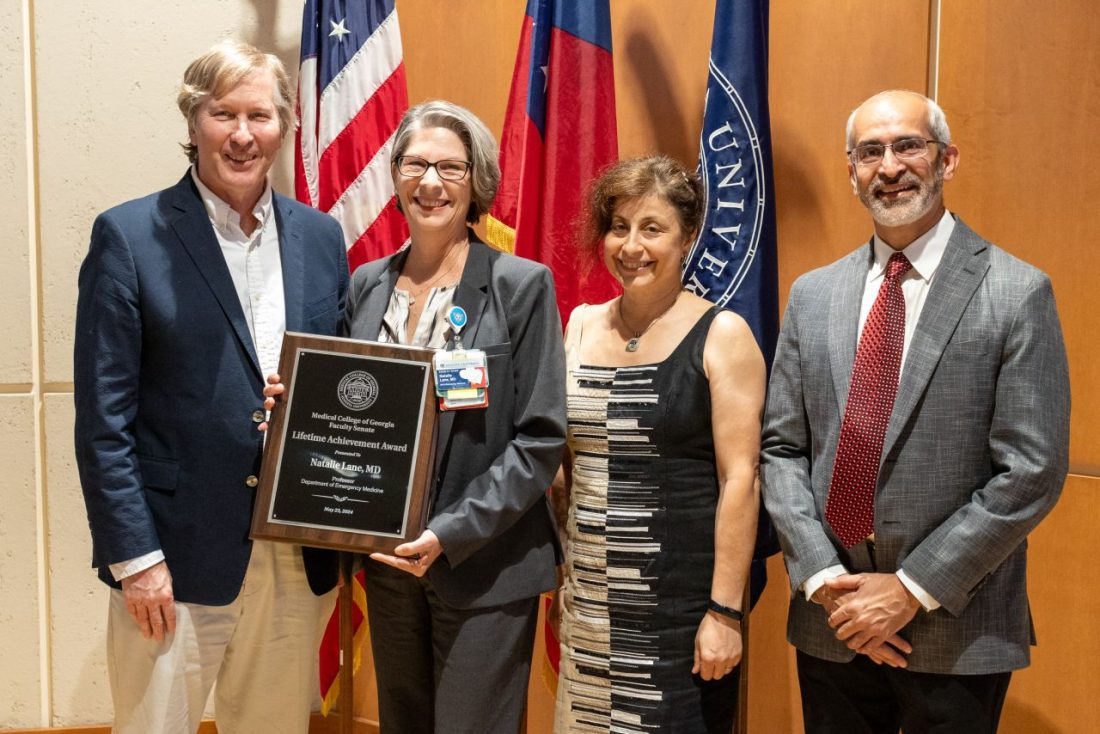When Natalie Lane, MD, received the Medical College of Georgia’s Lifetime Achievement Award this year, she admits she was a bit surprised.
“It was much appreciated, but it always makes you feel like, if you’re given a lifetime achievement award, it’s all over,” she said with a laugh.
Lane, who came to MCG in 1997, is nowhere close to winding down. In fact, she said her current work is in “full-blown mode.”
Since 2005, Lane has served as the director of the Pediatric Emergency Medicine Fellowship for the Children’s Hospital of Georgia’s emergency department, in addition to her dual appointments as an associate professor in the Department of Pediatrics and a professor in the Department of Emergency Medicine. She is also the service chief for Children’s emergency department, which sees roughly 30,000 patients each year.
“I gain a lot from watching young learners move forward,” Lane said. “I think every person comes with different talents and different passions. As a fellowship director, I’m not holding hands, particularly of medical students, or dictating what a resident does. We’re taking on adults who have chosen an extra three years in their development to become very specialized. The hope is that they come out of it with strengths that set them apart from others, and they have something unique to bring to the job.”

Lane’s dedication to her students has been recognized before. She has been awarded the Exemplary Teaching Award for both medical student and graduate medical education teaching four times and has been honored by the emergency medicine residency program as an outstanding pediatric clinical faculty member six different times.
She has been focused on helping community hospital emergency departments implement guidelines to ensure they have the right resources to care for pediatric patients, from medications and equipment to policies and properly trained staff.
“It’s been exciting to watch that grow over the years from a national standpoint, but I’m also really involved regionally,” Lane said. “It’s a voluntary system. It’s not required. Those institutions that step forth are really interested in trying to do better by children.”
Lane chairs the state committee on emergency medicine for the Georgia American Academy of Pediatrics, serves as the chapter’s liaison for disaster preparedness and is also a past national emergency medicine committee member for the AAP but is still working nationally with the academy on a hospital transfer toolkit. She is also chief marketing officer and chair of the emergency preparedness committee of the Pediatric Health Improvement Coalition of Georgia.
Above all else, Lane said she hopes her work helps others understand what the nature of pediatric emergency medicine truly is.
“You are there for that patient that is in their worst crisis, whether they have an ear infection or a huge trauma,” she said. “You need to treat those families equally. Every individual parent feels their child is having an emergency. For young learners, it’s not just about the medicine; it’s about how you handle the emotions that surround it and the expectations of families.”
 Augusta University
Augusta University




